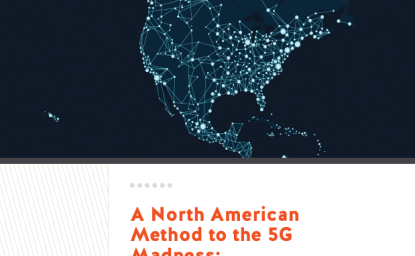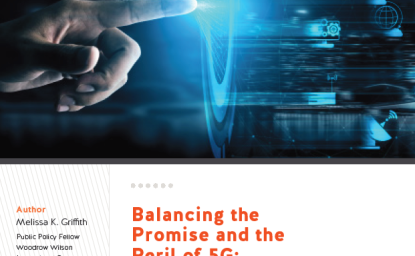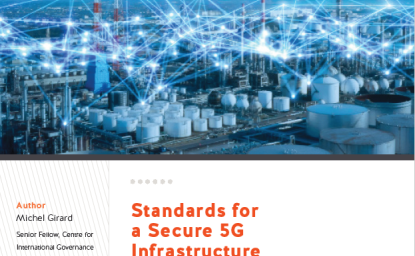What’s Missing for Boosting Mexico’s 5G Rollout? The Public Policy Landscape



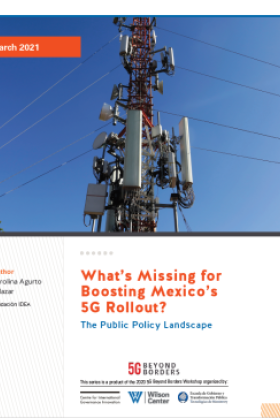
Key Points
This essay presents a snapshot of Mexico’s current public policy surrounding the deployment of 5G technology, with an emphasis on the regulatory and institutional frameworks, as well as the main stakeholders of the ecosystem. The essay also provides key recommendations for addressing the challenges and opportunities of the current and future 5G landscape in the country.
Even though Mexico is expected to see one of the fastest rates of 5G adoption in Latin America and that this technology could consolidate prospective applications in key development sectors (manufacturing, health, agriculture), the country faces two main challenges for an optimum rollout of said technology: (i) the atomization of the accountable public entities; and (ii) an existing environment of mistrust and uncertainty derived from a lack of effective communication that aligns the expectation of the private sector with the plans of the current federal government. Besides these challenges, the ongoing COVID-19 pandemic has introduced more uncertainty across several sectors and industries, leading experts to consider that the arrival of 5G in Mexico, on a commercial level, will not be ready until 2025.
With these challenges in mind, Mexico and the stakeholders involved in the deployment of its 5G networks could benefit from considering working towards the following:
- Define clear roles and attributions of public entities regarding the administration and commercialization of radio spectrum.
- Establish a comprehensive roadmap for the optimal deployment of 5G technology, addressing at least issues such as: (i) cybersecurity, (ii) risk management and mitigation plans, and (iii) differentiated rollout plans from a geographic-digital development perspective
- Promote a stable and reliable telecommunications environment with timely spectrum regulation, precise and transparent rules for operators and institutions, incentives for innovation, and solid public-private collaboration mechanisms.
- Take advantage of the USMCA platform for learning from the countries of the region in creating 5G strategies.
Acknowledgements
This overview is a contribution to a workshop focusing on the future of 5G in North America. The 5G Beyond Borders workshop, organized by the Wilson Center, the Centre for International Governance Innovation (CIGI), and Tecnológico de Monterrey, aimed to discuss how strategic cooperation at the North American level can directly shape the future of 5G and lay the groundwork for expanded North American competitiveness in a range of emerging technologies. One primary goal of the workshop was to help lay the foundations for a broader North American Technology Trust.
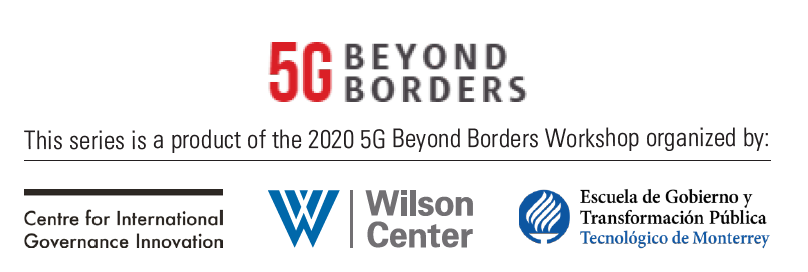
Author

Science and Technology Innovation Program
The Science and Technology Innovation Program (STIP) serves as the bridge between technologists, policymakers, industry, and global stakeholders. Read more


Mexico Institute
The Mexico Institute seeks to improve understanding, communication, and cooperation between Mexico and the United States by promoting original research, encouraging public discussion, and proposing policy options for enhancing the bilateral relationship. A binational Advisory Board, chaired by Luis Téllez and Earl Anthony Wayne, oversees the work of the Mexico Institute. Read more


Canada Institute
The mission of the Wilson Center's Canada Institute is to raise the level of knowledge of Canada in the United States, particularly within the Washington, DC policy community. Research projects, initiatives, podcasts, and publications cover contemporary Canada, US-Canadian relations, North American political economy, and Canada's global role as it intersects with US national interests. Read more


